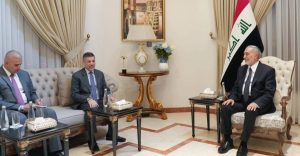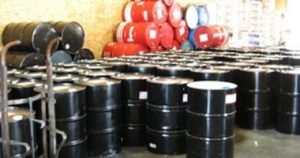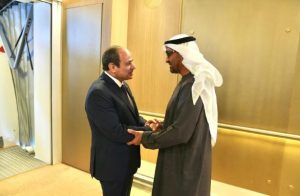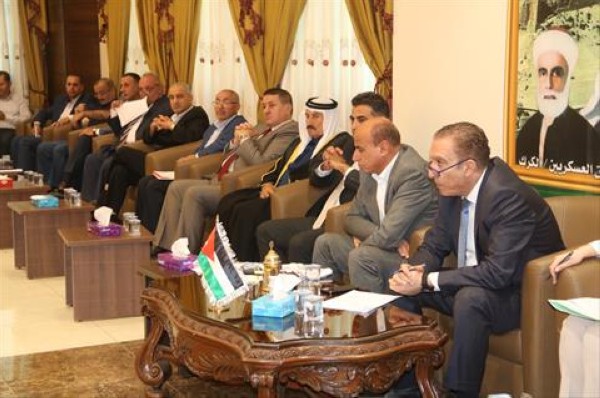Le député Dr Ibrahim Al-Tarawneh, chef du bloc parlementaire national Al-Mithaq, a affirmé que le bloc continue de suivre les actions et décisions du gouvernement dans le cadre de son rôle législatif et de contrôle.
Il a souligné que les projets et réalisations doivent être réalistes, tangibles et répondre aux besoins de développement des communautés locales, plutôt que de rester des plans de construction. Il a ajouté que tout dysfonctionnement ou retard dans l’exécution sera traité en coordination avec le gouvernement central et dans le cadre des outils constitutionnels et de contrôle.
Al-Tarawneh a tenu ces propos lors de la visite sur le terrain effectuée par le bloc dans le gouvernorat de Karak, où ils ont rencontré le gouverneur de Karak, Qablan Al-Sharif, plusieurs directeurs de départements gouvernementaux, le comité du conseil provincial et les présidents des comités municipaux dans la salle du club des retraités militaires, pour examiner l’état des projets de développement approuvés par le gouvernement lors de sa session tenue dans le gouvernorat.
Il a expliqué que cette visite fait suite aux tournées de contrôle commencées dans les gouvernorats d’Irbid et de Mafraq, visant à évaluer les taux d’avancement des projets approuvés par le Conseil des ministres et à exprimer la confiance.
Al-Tarawneh a révélé que le bloc soumettra un mémorandum au gouvernement recommandant une augmentation des allocations budgétaires de Karak, sur la base du rapport de visite, dans le cadre de son rôle de contrôle et de suivi pour lever les obstacles rencontrés par les projets dans divers secteurs, notamment la santé, le tourisme, les infrastructures, les transports, l’eau et l’assainissement, ainsi que les projets productifs et industriels dans la zone industrielle et la vallée du Jourdain.
Il a indiqué que certains projets à Karak n’ont pas encore commencé malgré les promesses précédentes, tels que les projets d’assainissement, la création d’un centre d’ambulance et d’urgence dans le nord de Karak, et l’agrandissement de l’hôpital gouvernemental incluant le bâtiment des cliniques externes. Il a noté que certains projets n’ont pas dépassé un taux d’avancement de 30 à 35 %, tandis que d’autres, comme les projets de développement social, ont été entièrement achevés.
Le gouverneur Al-Sharif a salué le rôle législatif et de contrôle de la Chambre des représentants, soulignant la coopération étroite entre les autorités législative et exécutive pour réaliser la vision du roi Abdallah II visant à offrir les meilleurs niveaux de service aux citoyens.
Il a confirmé que la gouvernance administrative suit continuellement et assidûment avec les ministères, le conseil provincial, les municipalités et toutes les autorités concernées le déroulement des projets annoncés par le gouvernement lors de sa session tenue dans le gouvernorat, travaillant à lever les obstacles pour garantir la réalisation de ces projets selon les plans établis, les allocations financières et les délais, dans le but d’améliorer la réalité des services, du développement et de l’économie dans le gouvernorat.
Il a expliqué que les plans exécutifs dans le gouvernorat reposent sur trois piliers principaux : les projets gouvernementaux, les initiatives royales et les projets du conseil de décentralisation. Il a indiqué que la matrice exécutive des projets de développement touristique, approuvée suite aux directives du roi lors de sa récente visite dans le gouvernorat, a commencé à mettre en œuvre les projets approuvés pour 2025 d’une valeur de 3,5 millions de dinars jordaniens.
Ceux-ci comprennent la maintenance et la réhabilitation du château de Karak, le développement de la place du château et des bâtiments environnants, le sanctuaire d’Al-Khidr, le développement du système de transport lié à l’itinéraire touristique de la ville, la création d’un centre d’artisanat, l’achèvement du plan global, l’inventaire des maisons patrimoniales, et le développement des zones de Wadi Mujib et Wadi Bin. En 2026, d’autres projets d’une valeur de 6 millions de dinars seront mis en œuvre.
Al-Sharif a indiqué que le taux d’avancement des projets gouvernementaux, au nombre de 188 répartis sur 15 ministères pour un coût total de 133 millions de dinars, a atteint 56 % avec une dépense de 36 millions de dinars. Par ailleurs, le taux d’avancement des projets financés par le budget de décentralisation du conseil provincial pour l’année en cours, au nombre de 109 projets d’une valeur de 8,811 millions de dinars, a atteint 32 % selon les taux de dépenses financières.
Les députés Abdul Nasser Al-Khasawneh, Abdul Halim Al-Ananbeh, Omar Al-Khalidi, Islam Al-Azzazmeh, Rania Khalifat et Faleha Al-Khudair ont souligné l’importance de fournir un soutien complet et intégré au gouvernorat couvrant divers secteurs et régions par l’augmentation du budget de Karak. Ils ont confirmé la disponibilité du bloc à coopérer avec les départements exécutifs et le gouvernement central pour trouver des solutions aux défis rencontrés par les projets de développement et de service.













Recommended for you
طالب الرفاعى يؤرخ لتراث الفن الكويتى فى "دوخى.. تقاسيم الصَبا"
مدينة المعارض تنجز نحو 80% من استعداداتها لانطلاق معرض دمشق الدولي
تقديم طلبات القبول الموحد الثلاثاء و640 طالبا سيتم قبولهم في الطب
البريد المصري: لدينا أكثر من 10 ملايين عميل في حساب التوفير.. ونوفر عوائد يومية وشهرية وسنوية
سمو الشيخ عيسى بن سلمان بن حمد آل خليفة يستقبل سفير الولايات المتحدة الأمريكية لدى مملكة البحرين
الجغبير: القطاع الصناعي يقود النمو الاقتصادي